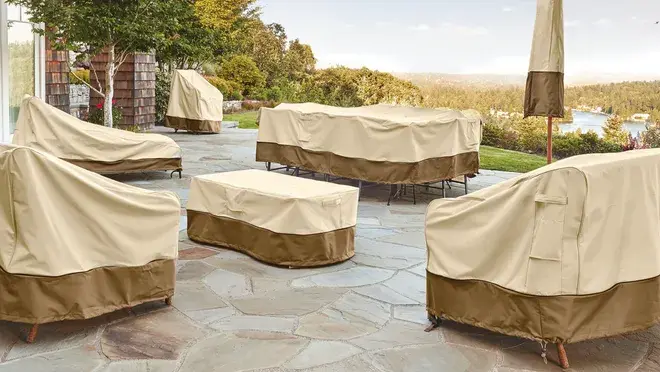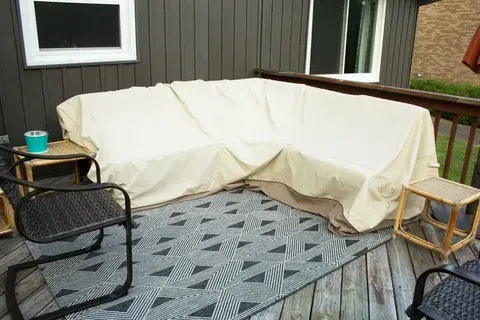How Roof Waterproofing in Dubai Prevents Mold and Structural Damage
- Maintenance indubai
- Apr 4, 2025
- 3 min read
Introduction

Dubai’s extreme climate, characterized by high temperatures and occasional heavy rains, makes roof waterproofing an essential aspect of building maintenance. Without proper waterproofing, moisture can seep into structures, leading to mold growth and structural deterioration. Waterproofing solutions serve as a protective barrier that safeguards both residential and commercial properties from costly damages and health hazards.
Understanding Roof Waterproofing
Roof waterproofing in dubai involves applying protective layers and coatings to prevent water penetration. These solutions include liquid waterproofing membranes, bituminous coatings, polyurethane coatings, and elastomeric paints. Each method provides varying levels of protection based on the building’s needs and environmental exposure. Given Dubai’s climate, waterproofing materials must withstand extreme heat, UV exposure, and occasional downpours.
How Waterproofing Prevents Mold Growth
Mold thrives in damp environments, and unchecked water infiltration creates ideal conditions for mold spores to multiply. Moisture accumulation in ceilings, walls, and insulation materials leads to mold development, which poses significant health risks, such as respiratory issues and allergies. Waterproofing creates a sealed surface that prevents moisture absorption, thereby reducing the likelihood of mold growth.
Additionally, advanced waterproofing solutions integrate anti-fungal properties, further enhancing mold prevention. By keeping roofs dry and preventing leaks, property owners in Dubai can maintain a healthy indoor environment free from mold-related concerns.
Structural Damage Due to Water Infiltration
Water infiltration weakens building materials over time, compromising structural integrity. Concrete, wood, and steel—common construction materials—react differently to prolonged exposure to moisture. Concrete develops cracks, reinforcing steel corrodes, and wooden elements rot, leading to significant damage. Waterproofing not only blocks water penetration but also extends the lifespan of a structure by preventing these issues.
Thermal expansion and contraction in Dubai’s hot climate further exacerbate structural damage when moisture is present. During the day, high temperatures cause materials to expand, while cooler nights lead to contraction. The presence of water in structural elements accelerates the formation of cracks and waterproofing in dubai weakens the foundation. Effective waterproofing minimizes water retention, reducing thermal stress and maintaining structural stability.
Types of Roof Waterproofing Solutions
Dubai offers a variety of waterproofing solutions tailored to different roofing structures. Liquid waterproofing membranes provide flexible and seamless protection, making them ideal for irregular surfaces. Bituminous coatings, commonly used in commercial buildings, offer excellent water resistance and durability. Polyurethane coatings provide superior adhesion and elasticity, making them a popular choice for high-rise structures. Elastomeric paints act as an additional protective layer by preventing water ingress while reflecting UV rays, helping reduce heat absorption.
Choosing the right waterproofing method depends on several factors, including the building’s age, roof type, and environmental exposure. Professional waterproofing contractors in Dubai assess these variables to recommend the most effective solution for long-term protection.
Benefits of Roof Waterproofing
Investing in roof waterproofing offers numerous benefits beyond preventing mold and structural damage. It enhances energy efficiency by reducing heat absorption, leading to lower cooling costs. Waterproofing also minimizes maintenance expenses by preventing recurring leaks and repairs. Additionally, it increases property value by ensuring longevity and durability, making it a wise investment for homeowners and commercial property owners alike.
By implementing high-quality waterproofing solutions, Dubai’s residents and businesses can protect their properties from the adverse effects of water damage. Regular inspections and timely maintenance further enhance the effectiveness of waterproofing measures, ensuring buildings remain safe and resilient against the city’s harsh climate.
Conclusion
Roof waterproofing in Dubai is an indispensable practice for maintaining structural integrity and preventing mold growth. With the city’s extreme weather conditions, protecting buildings from moisture infiltration is crucial to avoiding costly repairs and health hazards. By utilizing advanced waterproofing techniques and materials, property owners can ensure long-term protection, enhanced durability, and improved indoor air quality. Investing in waterproofing is a proactive measure that secures the safety and longevity of any building in Dubai’s challenging environment.



Comments